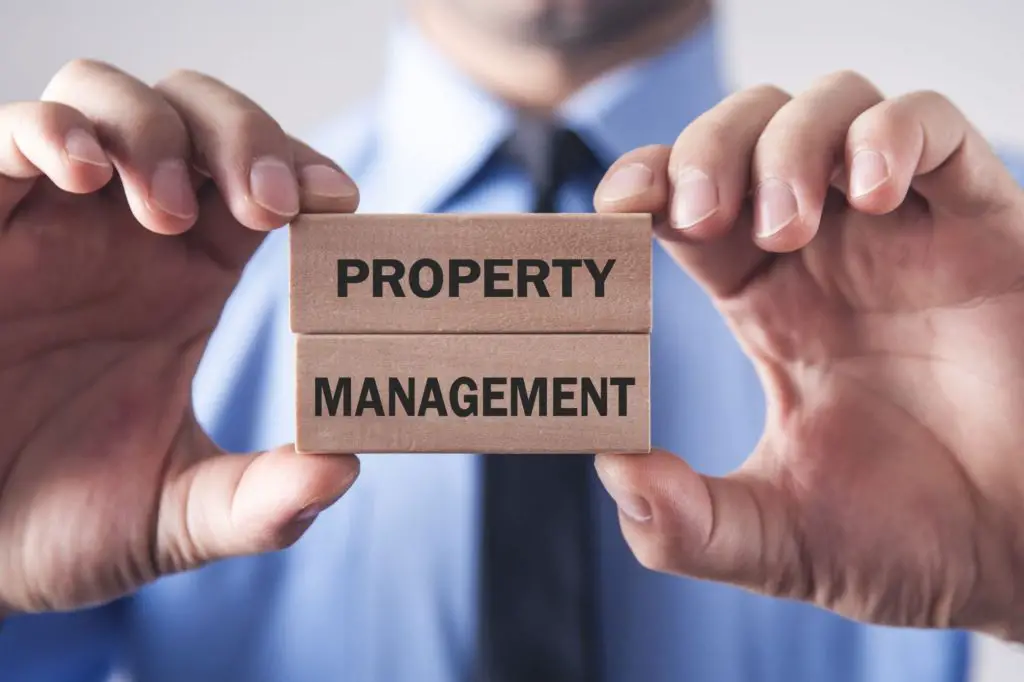(**) Disclosure: This post may contain affiliate links, meaning our company, JCHQ Publishing will get a commission if you decide to make a purchase through the links, but at no additional cost to you.
Property management can be a rewarding career with great advancement opportunities. If you are thinking to become a property manager in Utah, this is the perfect guide for you!
To become a property manager in Utah, an applicant must have a real estate license. The individual can be a “Real Estate Broker” or a “Salesperson” who works under the supervision of a broker. An applicant must be at least 18 years old, complete 120 hours of pre-licensing courses, pass the salesperson exam, go through a background check, submit an application and license fee to the Utah Division of Real Estate.
But before you decide to pursue further in this profession, it’s important to know what the role of a property manager is. As a property manager, your duties may include finding and screening prospective tenants for a property, negotiating the lease terms. You could also be responsible for rent collection, property inspection, maintenance, repair, providing updates, and communicating with the property owner.
In this guide, I will focus on the steps on getting a “real estate salesperson” license, which is the entry license level. So you may begin your property management career by joining a licensed brokerage firm. I will also cover the income updates and other FAQs about being a property manager in Utah.
But before we start, I want to give a brief disclaimer. This post is not intended as legal advice or state/federal real estate training. It is for general information only. Please always follow your State laws and best practices.
A Table Summary of Becoming a Property Manager in Utah
| Eligibility | Education | Exam | Fees |
|---|---|---|---|
At least 18 years of age Citizen of the United States or lawfully admitted alien Have a valid Social Security Number Hold a high school diploma or equivalent | 120 hours of pre-licensing courses 18 hours of continuing education each license term | 110 questions 165 minutes of writing time Consists of National Portion and State Portion Required passing score is 75 | Pre-licensing courses fees – $390 to $525 (approximately) Application fee – $100 Recovery fund fee- $12 Fingerprint processing fee- $40 FBI RAPBACK enrollment fee- $5 Exam fee- $59 |
10 Steps to Become a Property Manager in Utah

Step 1: Meet the eligibility requirement
- Citizen of the United States or lawfully admitted alien
- At least 18 years old
- Have a valid Social Security Number
- Hold a high school diploma or equivalent
Step 2: Complete the pre-licensing education
You are required to take 120 class hours of Real Estate Principles and Practices. Below is the content outline:
- Ownership of Real Estate (12 hours)
- Real Estate Brokerage and the Law of Agency (12 hours)
- Contracts (16 hours)
- Property Management (4 hours)
- Settlement (8 hours)
- Federal Taxation (2 hours)
- Real Estate Finance (16 hours)
- Valuation and Appraisal (6 hours)
- New Construction (2 hours)
- Math Skills (4 hours)
- Federal Laws (6 hours)
- Utah Law (24 hours)
- Testing and Review (8 hours)
I just checked with an approved education provider. Their course fee is around $390 to $525. After you complete the pre-licensing courses, you must write the real estate exam within one year.
Step 3: Pass the Utah Real Estate Salesperson Exam

The Utah real estate salesperson exam has 110 questions with 165 minutes of writing time. It consists of the General Portion and the State Portion. The required passing score is 70 for both portions. It is administered by the Pearson Vue and the exam fee is $59.
You may create an account on their website and register to write an exam.
At the day of the exam, make sure to bring along at least two valid IDs to verify your identity. Else, they won’ let you write it. The primary ID must be government issued and photo-bearing with a signature (i.e.: driver’s license, state ID, passport, military ID.). The second piece must contain a valid signature. (i.e.: U.S Social Security card, debt/credit card)
After you write the exam, you’ll receive a score report indicating “pass” or “fail.” If you pass, you’ll receive further information on how to apply for a real estate license. Else, you need to retake the exam. But you must wait at least 24 hours before making another reservation.
The Colibri is the online school that I like. Their Exam Prep have helped thousands of students pass their exam on the first try. They even have a “Pass or Don’t Pay” Guarantee. That’s why confident they are with their program. You may click here to view their exam prep. (**)
Step 4: Go through a background check

The Utah Division of Real Estate is responsible for issuing licenses to real estate salesperson and brokers. To protect the public interest, all real estate salesperson must go through a criminal background check. At the Pearson Vue testing center, you need to complete and sign a CERTIFICATION OF LEGAL PRESENCE. You’ll also go through the “Qualifying Questionnaire.”
Furthermore, after you write the exam, you are required to submit a fingerprint. If you have made an advance appointment, you may perform at Pearson Vue. Else, you may do so with another approved vendor.
Step 5: Submit an application to Utah Division of Real Estate

To register with the Utah Division of Real Estate, you need to submit a Salesperson Application. You must do so within 90 days of passing the real estate exam.
In there, it will ask for your personal details, the pre-licensing course completion certificate, and some background questions. You may submit the online application at the eGov portal and all required documents can be uploaded there. Just make sure all the files are in PDF format.
There is a $157 non-refundable fee. ($100 application fee, $12 recovery fund fee, $40 fingerprint processing fee, and $5 FBI RAPBACK enrollment fee)
Step 6: Join a licensed property management firm

To activate your salesperson license In Utah, you must be affiliate with a principal broker. This is the firm who would sponsor your real estate license.
Keep in mind that not all brokerage provide property management services to their clients. Most brokerages focus only on the buy-sell side of the business. So make sure you find one that specializes in property management.
At the time that I’m writing this guide, I can see online job postings looking for property managers. You may search through job forums such as ZipRecruiter, Glassdoor, or LinkedIn.
There are many property companies out there, but not all are suitable for you. As you start in this industry, it will help if you work for a company that could provide you with proper training and mentorship. And you would likely start out working as an assistant to a property manager.
Rather than having you reinvent the wheels, an established property management company can show you a standard procedure in working with clients effectively.
Step 7: Maintain the real estate license
All Utah real estate licensees must renew the salesperson license every two year. You must do so before the expiration date but no sooner than 45 days prior it.
You may renew it through the RELMS system. The renewal fee is $60.
Furthermore, you need to complete 18 hours of real estate continuing education during each license term. The curriculum must include:
- At least 9 of the 18 hours must be Core Topic Courses;
- Within the Core Topic Courses, there must have a Division approved 3-Hour Mandatory Course.
If you are a new real estate licensee, you need to take the:
- New Agent Course (12 hours)
- Mandatory Course (3 hours)
- An additional 3 hours of CE (either Core Topic or Elective hours).
So know your deadlines and don’t wait until the last minute to complete CE and renew your license. Failure to renew on time not only result in late renewal fee of $100, but it can cause interruption to your business.
Step 8: Keep up with the Utah real estate laws

In order to be successful in the real estate industry, it’s better to keep up with the latest laws and best practices. You may read over the Utah Code, Title 57 Real Estate:
| Utah Code | Description |
|---|---|
| Chapter 6 | Occupying Claimants |
| Chapter 8 | Condominium Ownership Act |
| Chapter 8a | Community Association Act |
| Chapter 14 | Limitations on Landowner Liability |
| Chapter 16 | Mobile Home Park Residency Act |
| Chapter 17 | Residential Renters’ Deposits |
| Chapter 20 | Local Rent Control Prohibition |
| Chapter 21 | Utah Fair Housing Act |
| Chapter 22 | Utah Fit Premises Act |
| Chapter 23 | Real Estate Cooperative Marketing Act |
| Chapter 25 | Uniform Environmental Covenants Act |
| Chapter 26 | Utah Uniform Assignment of Rents Act |
In there, you can learn essential rules that are applicable to your real estate activities – for example, licensing requirements, use of personal assistants, requirements and restrictions in advertising.
Step 9: Go through advanced education
Property managers are constantly tasked with new responsibilities and challenges. With the rise of online rental applications, environmental health and safety requirements, it’s important for property managers to be up-to-date on real estate laws and best practices.
For example, can you charge an application fee? Is it okay to run a background check on to prospective tenants? What happen if the tenants violate the lease agreement? Who will be responsible for the maintenance, repair or damages?
You may also consider taking the following courses to equip yourself with the property management knowledge. They are offered by Institute of Real Estate Management (IREM). IREM is an affiliate of the National Association of REALTORS®.
- Managing Residential Properties (**)
- Managing Commercial Properties (**)
- Managing Condominium and Homeowners Associations (**)
Even though they are not part of the pre-license education requirement, your enhanced knowledge will help to set you apart from others in the industry.
Step 10: Join industry associations

You may consider joining the National Association of Residential Property Managers (NARPM). This allows you to connect with other property managers, thus learn from their valuable experience and share ideas with one another. You will also find updates on the housing markets, changes to the laws and regulations.
Another group you may consider is the Utah Association of REALTORS. It consists of mostly real estate professionals. If you plan to run your own property management company, this can be a great referral source for your business. They also have great resources such as the classes, events, housing reports and industry updates.
Here’s a snippet of what a property manager thinks about this career

I have been handling the management of family investments for 5-6 years now (licensed for a year to take our model public!). I am also a broker and investor myself, having done everything from complete gut rehab flips to buy and hold investments. I have been in the industry for over 10 years…
The biggest piece of advice I can give is to not take things personal. If you do your job correctly, which should be overly defined before you start to manage someone’s investment, then you are just dealing with people reacting to their situation (which can become very personal for them, since it is in their home).
But be polite and direct, don’t tell them what they want to hear, tell them what is actually happening. Also, always remember you are there to make the property owner fiscally happy first and foremost.
– Dan Gallagher, Zebra Cares LLC
Here’s another post I wrote. In there, you can read more on Dan’s thoughts about the property management profession. You can also find out what other property managers say about this career path.
FAQ about being a Property Manager in Utah

How much does it cost to become a property manager in Utah?
It costs approximately $741 to become a property manager in Utah. Here’s the breakdown:
- Pre-licensing courses fees – $390 to $525 (approximately)
- Application fee – $100
- Recovery fund fee- $12
- Fingerprint processing fee- $40
- FBI RAPBACK enrollment fee- $5
- Exam fee- $59
That is the cost to obtain the Iowa real estate salesperson license. But you may also want to invest into exam prep. This can increase your chance in passing the exam on the first try, so that you don’t need to waste time and money in retaking it.
How long does it take to become a property manager in Utah?
It takes approximately five months to become a property manager in Utah. But it also depends on the time it takes you to complete the pre-licensing course, exam, application, and get sponsorship by a licensed real estate brokerage.
How much do property manager make in Utah?

Property managers in Utah make an average annual income of $96,252. It typically range between $83,555 and $110,739. Top 10% of high-earning property managers are making over $123,928 per year. (*) Your earning as a property manager would depend on your skills, knowledge and experience in managing the properties. The type and number of real estate in your managing portfolio may also affect your compensation.
At the beginning phase of your property management career, you could be working as an assistant for a property manager. So your earning could be limited at that time.
But once you have developed the necessary skillset and demonstrated your ability to work independently, there should be a significant improvement to your earning.
(*) Source: Salary.com
Here’s salary guide you may be interested. In there, you’ll find the income figures for residential and commercial property managers. What makes one earn more than others? How do education, experience, and certification play a factor in earning?
I have a real estate license in another state. Can I become licensed in Utah by applying through reciprocity?
Yes, you may apply for Utah real estate license with states that has a reciprocity agreement. This includes Georgia, Mississippi, and Alberta. Here’s the Reciprocal Application and there is a non-refundable fee of $157.
Can a felon be a property manager in Utah?
The Utah Division of Real Estate places huge emphasis on the applicant’s honesty, trustworthiness, character and integrity. When evaluating an application, the Division will consider:
(i) criminal convictions with particular consideration given to any such acts involving:
(A) a felony conviction occurring within the five years preceding the date of application;
(B) a jail or prison term resulting from a felony conviction with a release date falling within the five years preceding the date of application;
(C) a conviction of a class A or class B misdemeanor, or similar offense, involving fraud, misrepresentation, theft, or dishonesty occurring within the three years preceding the date of application; or
Quote from Utah Admin. Code 162-2f-201
But don’t get discouraged as everyone has a past. The most important is that you can demonstrate that you will serve the public in a fair, honest, and open manner.
Here’s another post that covers how to apply for a real estate license with a felony record. In there, you’ll find practical ideas which could help your application.
Is there any exception to the real estate license requirement for property management activities?
According to the Utah Division of Real Estate, an individual must have a real estate license for engaging in property management activities for another person including advertising real estate for lease or rent, procuring prospective tenants or lessees, negotiating lease or rental terms, executing lease or rental agreements.
However, the licensing requirement does not apply to:
- Managing your own property,
- Employee of a property owner,
- Apartment manager who reside in the apartments at reduced rent,
- Full-time salaried employees of a Homeowners Association, hotel or motel management,
- Management activities associated with rental accommodations for a period of less than 30 consecutive days.
How do I start my own property management company in Utah?
As you developed the necessary skillset, rather than working for someone else, you may consider getting a real estate broker license and start a property management company. This allows you to hire other property managers, thus, lead to a scalable business model.
To obtain a real estate broker license in Utah, an applicant must:
- Be at least 18 years old;
- Have at least 3 years of full time licensed real estate work experience; OR 2 years full-time, licensed, active, real estate experience and 1 year full-time professional real estate experience from the optional experience table 3 in the Appendix of Administrative Rule R162-2f-202b.
- Complete 120 hours of pre-licensing courses:
- Part 1 Utah Law 30 Hours, including 3 hours testing
- Part 2 Broker Principles (Fundamentals) 45 Hours, including 4 hours of testing
- Part 3 Broker Practices (Broker Level) 45 Hours, including 4 hours of testing
- Pass the Utah Real Estate Broker Exam;
- Submit an application and a license fee to the Utah Division of Real Estate;
- Complete CE and license renewal requirement
Also, you must have a separate trust account for the property management transactions and for the real estate transactions.
However, running a company is very different from working as an employed property manager. You need to figure out all the different aspects of the business, such as marketing, branding, prospecting, hiring, training, and accounting.
The expenses will also be a lot higher, you need to account for business insurance, staff’s salary and benefits, office rent, furniture, office supplies, software, many more.
I have more questions about the Utah real estate license, whom should I contact?
You may contact the Utah Division of Real Estate:
- Phone: 801-530-6747
- Email: realestate@utah.gov
- Fax: 801-530-6749
They also have a live chat option.
So that’s all I have to share for now. Do you like this guide? If so, please share it.
(**) Affiliate Disclosure: Please note that some of the links above are affiliate links, and at no additional cost to you. Our company, JCHQ Publishing will earn a commission if you decide to make a purchase after clicking on the link. Please understand that we include them based on our experience or the research on these companies or products, and we recommend them because they are helpful and useful, not because of the small commissions we make if you decide to buy something through the links. Please do not spend any money on these products unless you feel you need them or that they will help you achieve your goals.
Disclaimer: The information in this post is for general information only, and not intend to provide any advice. They are subjected to change without any notice, and not guaranteed to be error-free. Some of the posts on this site may contain views and opinions from individual not related to JCHQ Publishing. They do not necessarily reflect our view or position.
Reference:
- Utah Department of Commerce – Division of Real Estate (source)
- Utah Code, Title 57 Real Estate (source)
- Utah Association of REALTORS (source)
- Pearson Vue Utah Real Estate Candidate Handbook (source)
- Bureau of Labor Statistics – Real Estate Agents (Source)
- Salary.com – Property Manager Salary in Utah (source)
- RedFin – Utah Housing Market (source)


